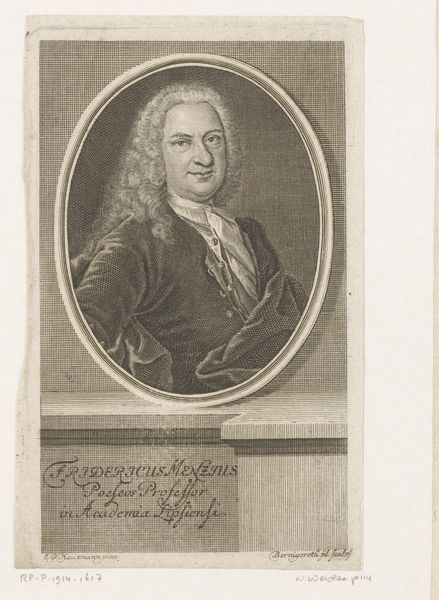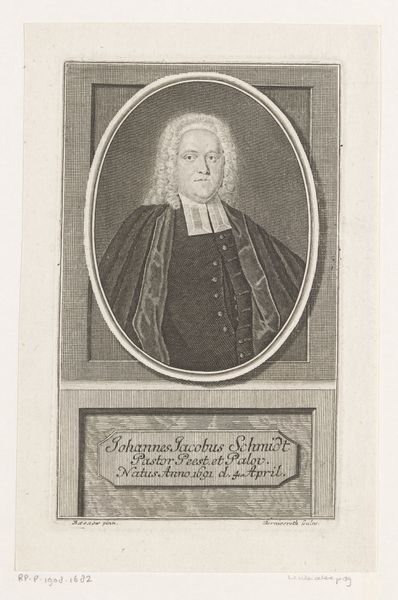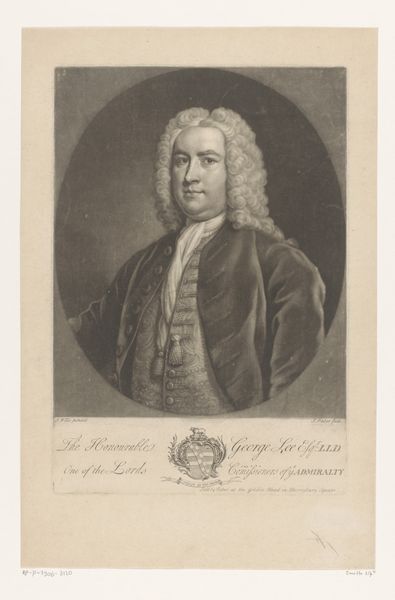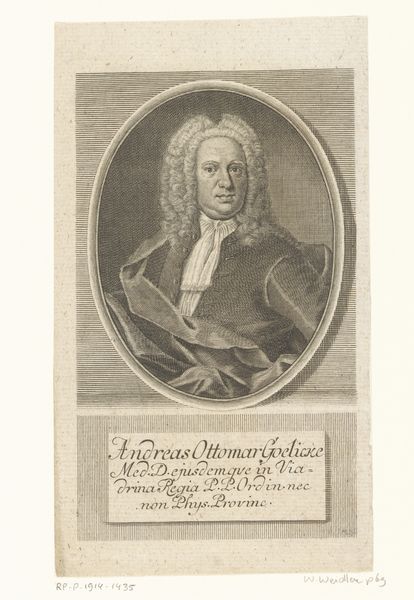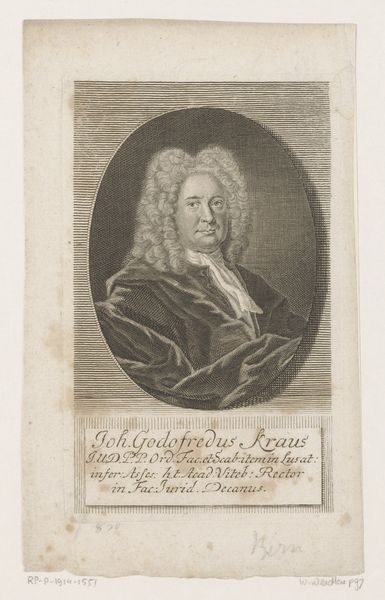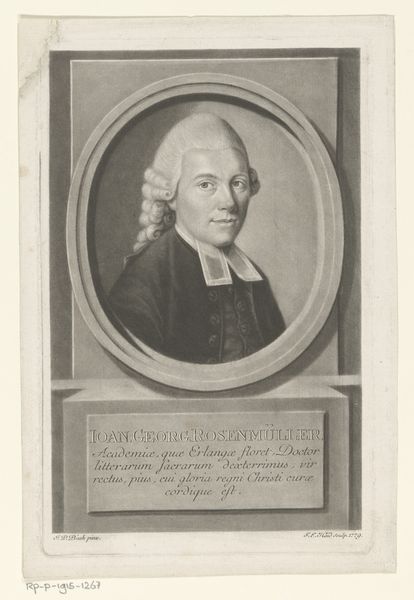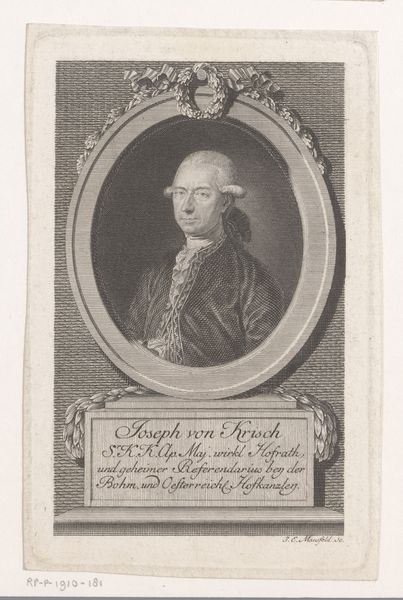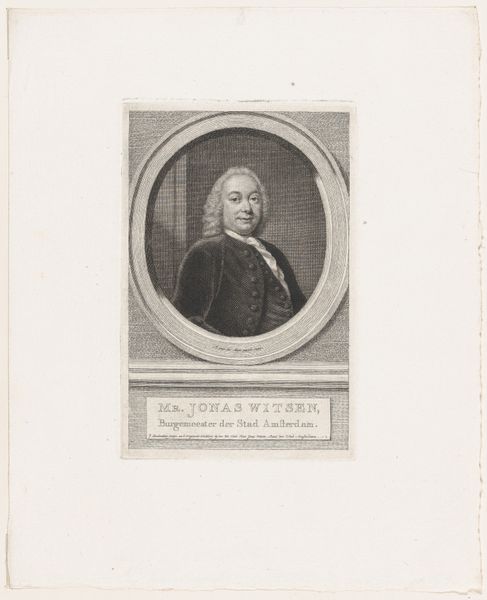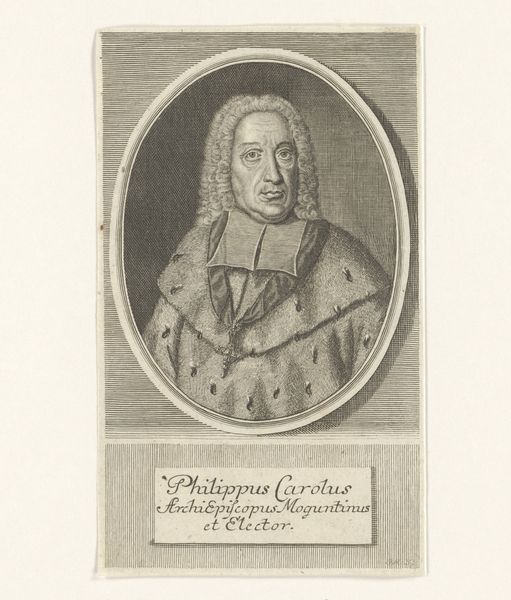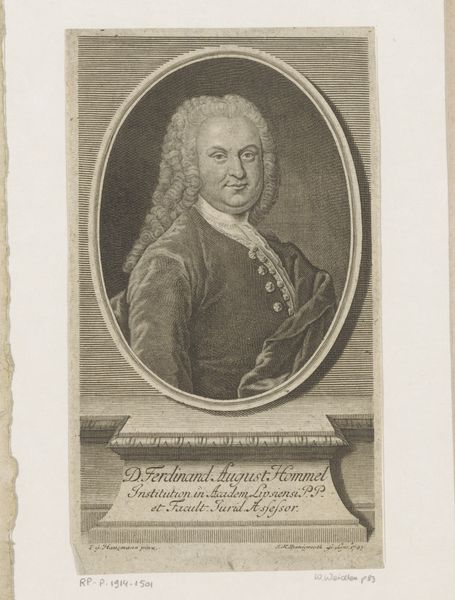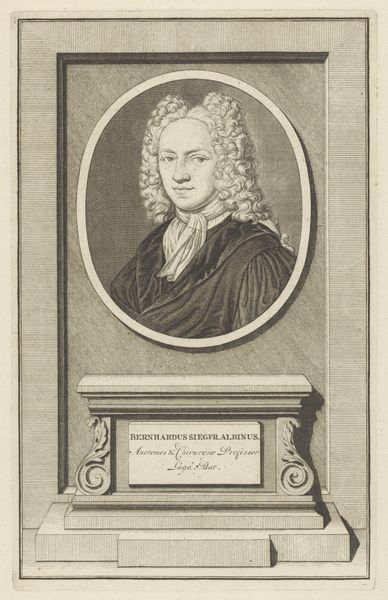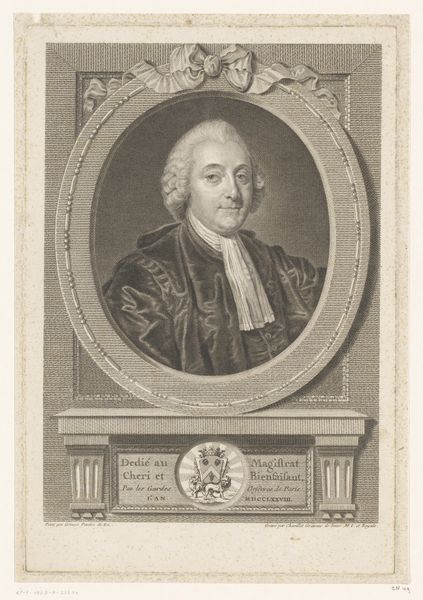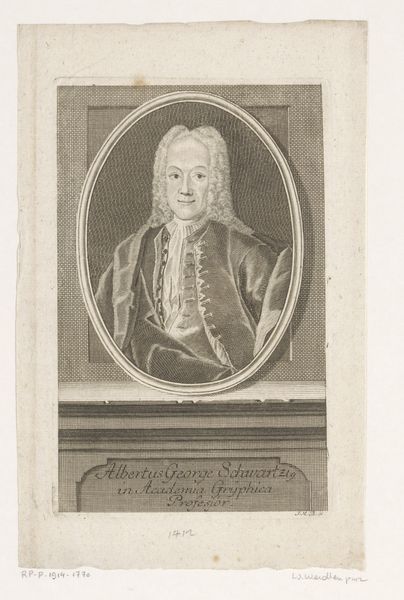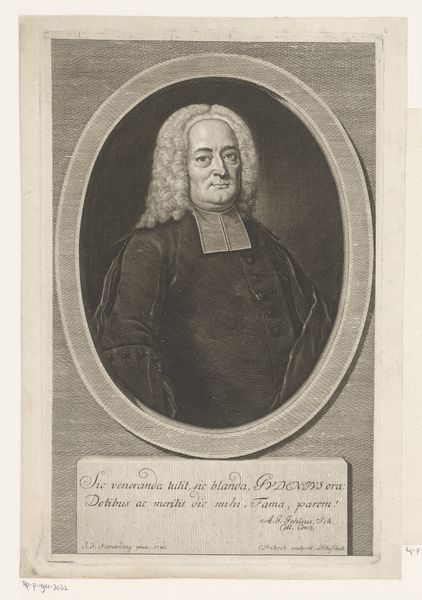
print, engraving
#
portrait
#
baroque
# print
#
old engraving style
#
academic-art
#
engraving
#
realism
Dimensions: height 153 mm, width 95 mm
Copyright: Rijks Museum: Open Domain
Editor: This is a 1742 engraving by Johann Martin Bernigeroth, titled "Portret van Johann Conrad Creiling." It’s incredibly detailed, especially considering it's a print. The subject looks quite serious and dignified, enclosed in that oval frame. How do you interpret this work within its historical context? Curator: Portraits like this one served a crucial social function in the 18th century. Beyond simple likeness, they signified status and intellectual authority. Creiling, a professor of physics and mathematics, is presented in a very particular light. How do you think the print format itself contributes to this portrayal? Editor: I guess the print format made it accessible to a wider audience, allowing for a kind of distribution of his image and therefore, his authority? Curator: Precisely. Consider the institutions and power structures at play. This isn't just an image of an individual; it's about representing and reinforcing the academy's role in society. Think about the conventions: the wig, the formal attire, even the Latin inscription. What do these details tell us about the intended audience and the values being promoted? Editor: It does feel like a very official and somewhat exclusive presentation, appealing to the educated elite. Curator: Exactly. And that carefully constructed image then circulates within a specific network, shaping perceptions of both the sitter and the institution he represents. So, the 'realism' isn't about objective truth, but a constructed reality serving particular social aims. What does thinking about it in that way change for you? Editor: I hadn’t really thought about prints as actively shaping social perceptions, only passively reflecting status. I see now how much intention there is in image creation. Curator: And that's the crucial point. Understanding art means understanding the active role it plays in the broader socio-political landscape. Editor: This gives me a lot to think about, I see the historical importance so much clearer now!
Comments
No comments
Be the first to comment and join the conversation on the ultimate creative platform.
